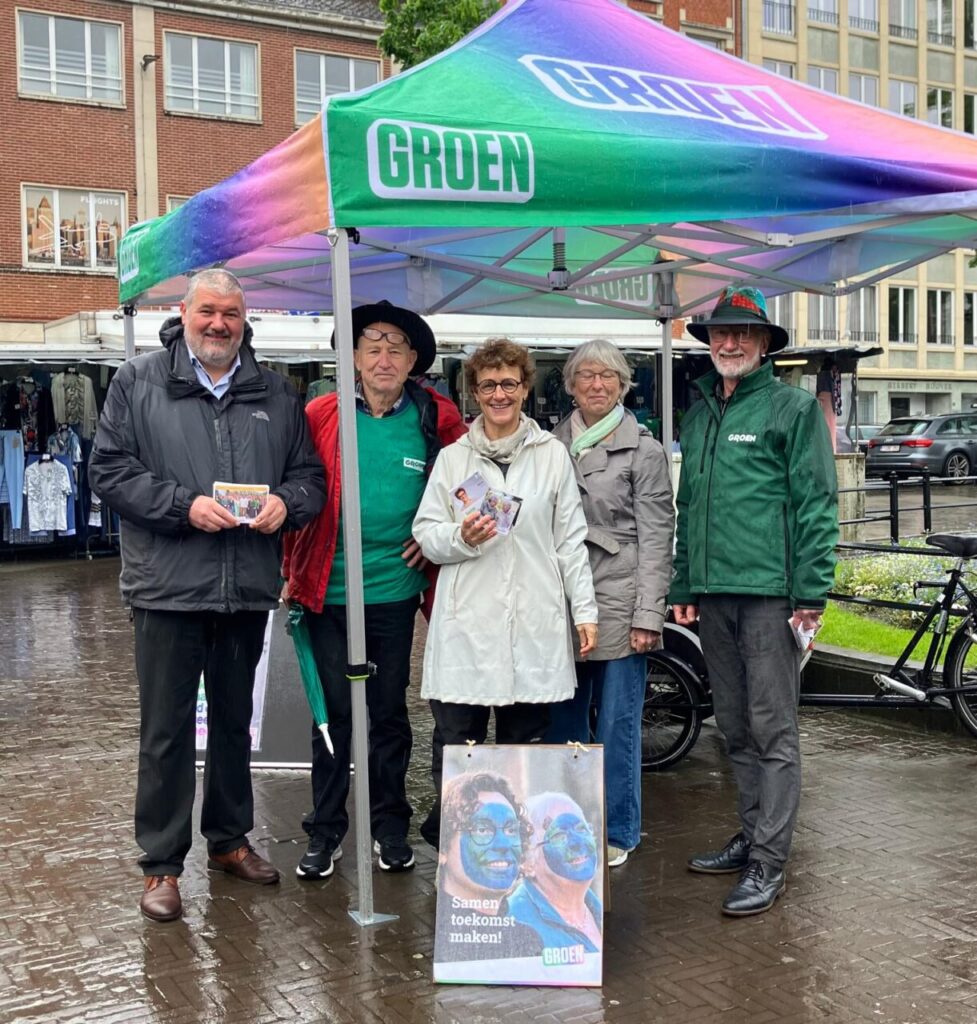Text: Kris Fierens, Chair of the European Green Seniors and Green Seniors in the Flanders (Belgium)
Results of the elections
The elections for the European Parliament took place in Belgium on June 25, 2024. These coincided with the elections for the National parliament and the Regions. As a result, the European elections received much less attention and the campaign concentrated more on the national and, typical for Belgium, also on the regional elections (Flanders, Wallonia and Brussels).
89.4% of Belgians voted (voting is compulsory in Belgium for these elections) for a total of 22 European seats. For the first time, 16-to-18-year young people were also allowed to vote. This did not significantly influence the results for the various parties.
The right-wing and far-right parties, especially in Flanders, gain the majority.
But the far-left parties also gained significantly.
Green lost several important percentage points, more in Wallonia (Ecolo) than in Flanders. Groen made a profit in Brussels. Despite fierce opposition from several parties, Groen is making gains in the capital, mainly with its mobility plan.
Groen obtained 6.32% of the votes (minus 1.4 %) and retains its only European seat
Ecolo obtained 3.71% of the votes (with a significant loss of 3.60%) and loses 1 seat (from 2 to 1).
There are a total of 22 seats to be allocated.
Campaigning

With GroenPlus we wanted to be visible in the campaign, we planned our own campaign moments and created our own material with our most important campaign points such as public transport, adapted housing, home care, digital inclusion, respect for diversity, volunteer work and informal care. Our leaflets and flyers were well received and the chats we had in markets and squares were constructive. But it was difficult to gain both space and attention within the Green Party campaign and in the campaign in general. The elderly problem was only marginally discussed. The topics of the national and regional elections also dominated the European campaign.
The campaign themes were mainly concentrated in bitter debate between the extreme parties around migration, purchasing power and anti- woke positions at national level.
The impact of European legislation and policy was not highlighted at all, on the contrary. Europe was previously seen as an obstacle, especially by right-wing parties. On the other hand, It was positive that the press and national media paid a lot of attention to information and many youth programs informed the first young voters. Negative was the publication of constant new election polls, especially just before and on election day itself. These probably had a driving negative influence on the losing parties and a positive influence on the winning parties. It is still too early to analyze more detailed evaluations, but what we will take with us to the next elections is: doubling the regional and national elections from the European elections (but that is a government decision), conducting a more unique green plus campaign within the party and more space to claim for elderly subjects. It has not yet dawned on the government and the population in general that 25% of the population will soon be over 60 years old and that it will be necessary to organize our society accordingly. It is not just about healthcare issues (which are absolutely important), but about participation and input in a policy in which a quarter of the population actively participates and does not suffer alone. It is also important that we build more of a bridge with the young people and are present in their campaign. An age-friendly society is necessary. Finally, what is good for the elderly is also good for families, young people, and people with disabilities.






